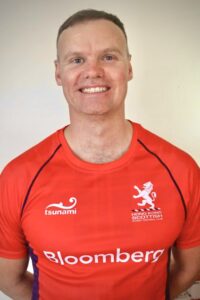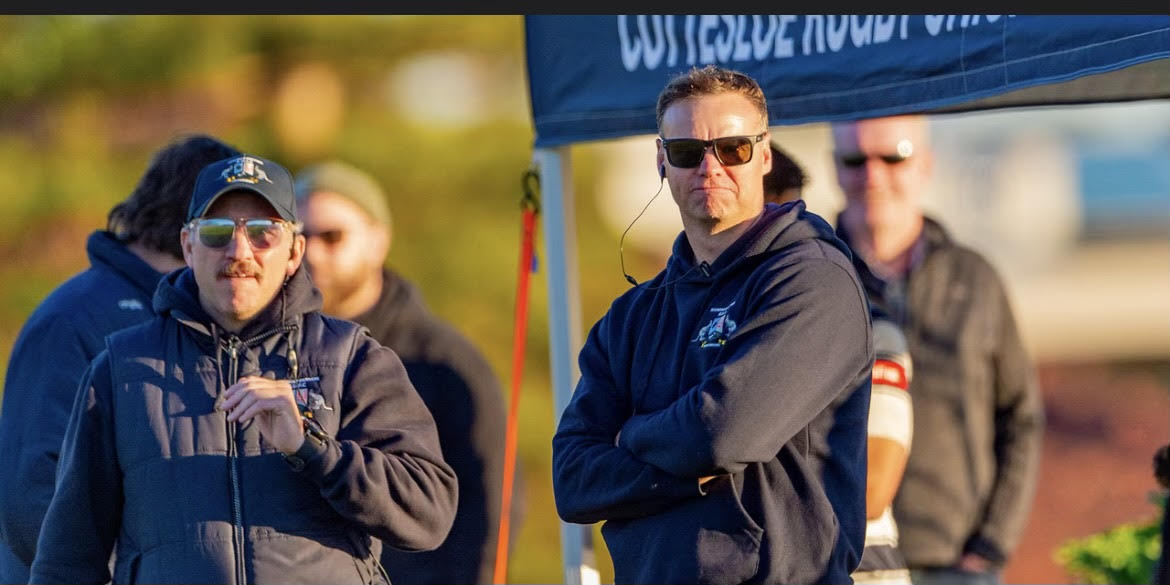Featuring in our latest student story is Matthew Nesbitt a Consultant at SANO Health and a recent graduate of our MSc in Performance Coaching. Matthew has worked in the sports performance field for 14 years including at age-grade, semi-professional and professional levels of rugby.
In this article, Matthew shared an insight into his current role at SANO Health, the challenges and differences in working across various levels in rugby and his time studying with Setanta.
The Journey from Athlete to Coach
Matthew’s passion for health and performance began early. “I’ve always been interested in health and performance from a very early age. I was a multi-sport athlete at age-grade level competing in multiple sports, but towards my later teenage years was more focused on rugby and athletics. I played nationally for Zimbabwe U18 and was the U18 provincial 400m champion. Those experiences drove me to follow a career in sports science, particularly strength and conditioning,” he shared.
Matthew began his strength and conditioning career with the Zimbabwe Sables Rugby Team in 2021 where he planned and implemented the S&C programme for the South Africa, Zimbabwe, Hong Kong, London and 2013 Russia World Cup sevens tournaments. “Going to the Russia Sevens World Cup in 2013 was a highlight in my career,” he shared.
He began working with the Hong Kong Scottish RFC as the Transitional Coach in 2015 working with all teams from development to the Premiership team. “Working with rugby players in Hong Kong was very rewarding,” he said. During this time he also worked with the Hong Kong Rugby Union working across various levels and age-grades.
Working Across Rugby Levels: The Challenges & Differences
Having coached across age-grade, semi-professional, and professional levels, Matthew reflected on the biggest challenges and differences he came across between the levels.
Age Grade: “The age grade is very complicated in terms of understanding a teenager’s ever-changing body and mind and you need to be very adaptable especially during the peak maturity stages to prevent injuries within your strength and conditioning programme.”
Semi-Professional: “Semi-professional is demanding in the sense that athletes have a 9-5 job in general so you have to work around these commitments and sometimes although you want your programme to come first you have to realise sometimes a semi-professional athlete won’t be able to commit to a session or programme like you want them to.”
Professional: “Professional level allows you to have full access to players and full control of your programme. A major difference between age grade and adult level is with age grade you are 9 times out of 10 a teacher whereas at adult level you are more of a mentor and guide through your programme.”
SANO Health
In 2023 Matthew made the move from the rugby world into the corporate sector when he took up a role as a Consultant with SANO Health. “I cover 4 mine sites in the Western Australia region which is 3 weeks of the month and the last week is spent in the office in Perth working on content and programmes,” he explained.
 Matthew’s personality-centred coaching philosophy has translated well into his current role. “I believe each person is different mentally, physically and socially. By understanding each individual’s character traits you can then tailor your coaching to be individualised to that particular person to get the best out of them,” he said.
Matthew’s personality-centred coaching philosophy has translated well into his current role. “I believe each person is different mentally, physically and socially. By understanding each individual’s character traits you can then tailor your coaching to be individualised to that particular person to get the best out of them,” he said.
“My role is multi-faceted and involves education where I do presentations to workers on topics involving health and injury prevention. The main areas we focus on are the lumber region, shoulders and ankles,” he explained. “We also do data and observational analysis which then is captured, analysed and tailored to provide back to the company through education and strength and conditioning programmes to prevent injuries. Programmes are tailored according to that particular individual’s injury history, job role and daily demands within life.”
Studying with Setanta
A recommendation from a friend led Matthew to Setanta. “I was recommended the program by a friend in Hong Kong when I lived there and it suited me being an online blended course so I could work and be flexible with the studies,” he shared. “I also wanted to further my education and I’m currently considering doing my PhD.
During his studies, there have been some key skills that have helped Matthew in his coaching career. One module that stood out to Matthew was the Research Methods & Data Management module. “The research process was a key skill I enjoyed doing and learning about and I use this in my current role to follow evidence-based content and programming,” he said.
Advice for Aspiring Coaches
Having created a successful coaching career, Matthew offered some advice for those hoping to pursue a career in performance coaching.
“I think a master’s degree, accreditation and doing an internship are important and are the industry-based standard for roles in the modern professional world of sports science and performance these days,” he offered. “Networking is vital while you are gaining these badges to ensure you are either getting experience and making contacts within the industry.”
Looking Ahead
In the future, Matthew has plans to go into the education sector. “I am looking at potentially becoming a lecturer at the University level in Australia as I really enjoy speaking in front of audiences and interacting with them,” he said. He also hopes to go back into the rugby world. “I would also like to be involved in rugby again at some point in the future,” he said.


Leave A Comment